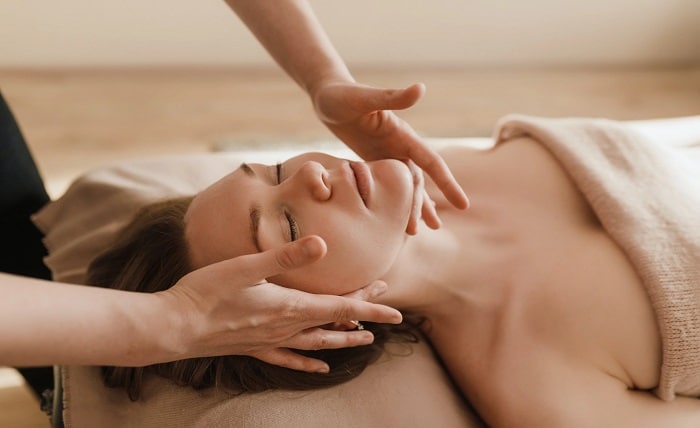Massage Therapy: Unleashing Touch’s Potential for Stress Relief

Stress has become a commonplace companion for many people in the modern world. The fast-paced lifestyle, personal obligations, and job stress can quickly deteriorate one’s mental and physical health. Even though stress may be inevitable, good stress management is essential to preserving general health. Massage treatment is one of the most effective, yet sometimes disregarded, methods of relieving stress. Because of the healing properties of touch, massage therapy 출장마사지 can help the body achieve deep relaxation, healing, and emotional equilibrium.
Not only is massage therapy a delightful treat, but it is also a stress-reduction strategy supported by science. Massage treatment provides a holistic approach to managing stress, from its instantaneous calming effects to its long-term advantages on cerebral clarity and emotional well-being. This age-old method has developed into a cutting-edge stress-reduction strategy that provides a holistic, all-natural cure for anyone looking for harmony and balance in their life.
The Link Between the Body and Stress
Stress can have an impact on almost every function in the body when it becomes chronic. Stress can be tolerated by the human body for brief periods of time, but prolonged stress weakens the body’s defenses. Cortisol, a hormone that primes the body for a fight-or-flight reaction, is released in response to stress. While prolonged exposure to cortisol can cause a variety of health problems, such as exhaustion, anxiety, melancholy, headaches, and tense muscles, it may be helpful in situations where there is an immediate threat.
Stress also has an impact on the neurological system, which raises blood pressure and heart rate. Pain or discomfort is frequently caused by the tightening of muscles, especially in the neck, shoulders, and back. The body’s capacity to fend off illness is diminished as a result of damage to the immunological and digestive systems. Chronic stress can eventually lead to more severe ailments like heart disease, hypertension, and compromised immunity. In order to assist the body reset and recover from the negative effects of stress, massage treatment can be used as a powerful stress reliever in this situation.
The Power of Touch: How Stress Is Reduced by Massage Therapy
In order to facilitate recovery, massage therapy uses the body’s own healing processes. Touch triggers the parasympathetic nerve system, which puts the body in “rest and digest” mode and prevents the “fight or flight” reaction brought on by stress. The body is urged to relax when the parasympathetic nervous system is triggered. Blood pressure drops, the heart rate lowers, and muscles start to relax. Those who are experiencing the physical symptoms of stress can feel relief from these consequences immediately.
The body’s natural painkillers and mood enhancers, endorphins, are also released in greater amounts during massage therapy. Anxiety and tension give way to a calm and contented feeling when these endorphins fill the body. Furthermore, massage aids in the reduction of cortisol levels, enabling the body to recuperate from the physiological consequences of stress. In addition to increasing circulation and supplying oxygen and nutrients to tissues and organs, the tactile stimulation that occurs during a massage aids in the body’s natural balance restoration.
In addition to its physiological effects, massage therapy provides an outlet for emotions. Being touched by someone else is naturally reassuring, and getting a massage can make you feel connected, safe, and cared for. Many people find that just receiving compassionate, non-intrusive touch can lead to an emotional breakthrough and lessen feelings of loneliness, anxiety, or melancholy. In addition to its physical advantages, this emotional release also fosters a more profound sense of inner tranquility and calm.
Various Massage Techniques for Stress Reduction
Not every massage is the same, and based on the demands of the individual, various techniques offer special benefits. One of the most common types of massage for reducing stress is Swedish massage. It uses long, flowing strokes that improve circulation and release tense muscles to encourage relaxation. This method is perfect for people looking for a general sense of serenity because it is soft and comforting.
In contrast, deep tissue massage targets the underlying layers of connective tissue and muscle. It works especially well for people who have persistent muscle tension or stress-related knots in their muscles. Even though this massage is more vigorous, the relief it offers is significant, particularly for people who suffer from physical pain brought on by stress, like headaches or backaches.
Aromatherapy massage combines the therapeutic advantages of essential oils with the benefits of touch for individuals seeking a more comprehensive approach. When paired with massage, natural relaxing scents like lavender, chamomile, and sandalwood can greatly alleviate stress and anxiety. Aromatherapy massage provides a holistic approach to relaxing by addressing both the physical and emotional levels.
Another extremely useful technique for relieving stress is hot stone massage. Smooth, hot stones are applied to certain body points in this therapy. The heat aids with muscular relaxation, making deeper tissue work painless. The heat from the stones also has a calming impact on the psyche, relieving tension and stress.
Massage Therapy’s Benefits for Mental Health
Massage therapy has a significant effect on mental health in addition to relieving the physical signs of stress. Emotional imbalances like anxiety, despair, or overload can be brought on by ongoing stress. Through the promotion of relaxation and emotional discharge, massage therapy combats these unfavorable feelings. The mind relaxes in tandem with the neurological system and muscles.
After receiving a massage, many people report feeling lighter, more in control, and more emotionally grounded. This is due to the fact that massage increases the synthesis of the neurotransmitters serotonin and dopamine, which are linked to emotions of contentment and relaxation. Anxiety decreases and mood improves when these hormones are released. Frequent massages offer a natural and therapeutic substitute for medication in the management of anxiety and depression symptoms.
Additionally, massage therapy might enhance focus and mental clarity. Chronic stress can distort one’s judgment and make it difficult to focus or make decisions. Better cognitive performance is made possible by the relaxation that a massage induces. People who include massage therapy in their self-care regimen frequently report feeling more creative, productive, and capable of overcoming obstacles in life.
Including Massage Therapy in Your Daily Routine
Massage therapy’s versatility is one of its greatest features. Massage therapy can be incorporated into your lifestyle as a daily practice to promote long-term well-being or as a one-time stress reliever. Although professional massages are most beneficial, self-massage methods can also help reduce stress. In times of extreme tension, learning to apply pressure to important points like the feet, shoulders, and neck can help to instantly calm the body.
Massage treatment can be an essential tool for people with hectic lifestyles to stay balanced. Frequent meetings, whether weekly or monthly, establish a regular relaxation 광안리출장마사지 routine that helps keep stress from building up. A lot of people discover that include massage in their regimen improves their general quality of life and sense of well-being in addition to relieving stress.
In summary, massage therapy is an effective and all-natural method of reducing stress. It provides mental, emotional, and bodily relief through the basic yet potent power of touch. Unlocking the potential of massage treatment can offer a route to rest, renewal, and equilibrium restoration in a world where stress is inevitable.




